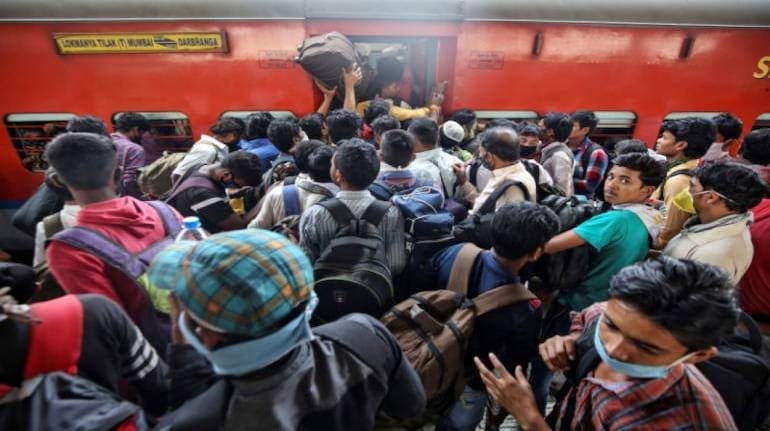



Congress President Sonia Gandhi’s offensive over the Railways charging stranded migrants for their return trip is clever optics. It is intended to win back its pro-poor base, which shifted considerably to Prime Minister Narendra Modi in the 2014 Lok Sabha polls and showed greater faith in his leadership in the 2019 elections.
Her announcement that the Congress would pay the fare for all migrants and needy workers travelling home by these trains made headlines for few hours till the government cleared the air. The Railways would bare 85 percent of the ticket fare, and the rest the state governments.
It is true that an official circular sent to the states on the special trains, which started running from May 1, did mention that ‘the local government authorities shall handover the tickets to the passengers cleared by them and collect the ticket fare and handover the total amount to the railways.’ This suggestion is a normal procedure, and was more for setting the accounting record straight for the Railways. It told the states that it was being charged just 15 percent of the train fare—the states could either bear the cost or get the migrant workers to pay.
The decision to charge 15 percent was taken so that state governments did not encourage migrant workers to leave their state in toto. Through this non-essential travellers could be avoided, and the plan was even kept under wraps to avoid a repeat of the April 14 incident outside the Bandra station in Mumbai
The Centre, through its interactions with the state leadership via video conferencing has been appealing not to encourage migrant workers to travel. There are mainly two reasons for this. One, the migrant workers could be potential carriers of the COVID-19 virus to their homes and villages that have till now been isolated from its spread. Two, it would leave many states without an essential labour force and slow down the economic revival process as the lockdown is gradually lifted. The same migrants would want to be back on their jobs, barring a few who may be inclined to try out the MGNREGA jobs closer to their villages.
Of the 15 percent that the state governments had to foot, three states — Congress-ruled Maharashtra and Rajasthan, and Left-ruled Kerala — got the migrants to pay their own fare. They did not think — till Sonia Gandhi made it an issue — that it was cruel to ask the migrants to pay. Gandhi sought to score brownie points by declaring that her party would pay the fare — when all she had to do was to ask Congress-run states to bear the 15 percent. Non-Congress ruled states, such as Bihar and Madhya Pradesh, had already done so.
The politics aside, this raises a more pertinent question: Should the Railways becoming a punching bag to be fleeced financially as well as politically?
The Railways, India’s largest employer, has had strained finances for some years now — unable to meet its essential costs of modernising rolling stock and tracks, besides maintaining a robust system. Already, it has been officially estimated that the break in passenger train services since March 25, which is the longest since the 54-day strike in 1974, is set to cause a loss of ₹6,500 crore or more in passenger revenue and ₹6,000 crore in freight earnings.
On an average, the railways earn about ₹145-150 crore a day ferrying passengers across India, translating into annual revenue of about ₹53,000 crore. At present, the goods trains are just ferrying essentials and that too at about 60 percent capacity due to lack of demand, and closure of industries.
Even these special trains carrying migrants are operating at about 60 percent capacity due to social distancing norms. In addition to this, the Railways has borne the cost of accompanying teams of paramedics and railway security officers to ensure no one gets off midway and returns without passengers.
By sensationalising the unfolding human misery and trying to politically gain from it, the Opposition did not mind the damage to the principle of balancing good economics and good politics as long as it appeared to corner Modi.
A responsible Opposition would have acknowledged that no one wants to forget that thousands of migrant workers have endured misery because of their desperation to get home at all costs. Hence, a prudent approach to help some of them take special trains must receive the support of all parties.
Shekhar Iyer is former senior associate editor of Hindustan Times and political editor of Deccan Herald. Views are personal.
Discover the latest Business News, Sensex, and Nifty updates. Obtain Personal Finance insights, tax queries, and expert opinions on Moneycontrol or download the Moneycontrol App to stay updated!
Find the best of Al News in one place, specially curated for you every weekend.
Stay on top of the latest tech trends and biggest startup news.